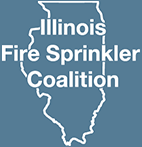THE DISASTER RECOVERY REFORM ACT AND THE I-CODES
OCTOBER 17, 2018
 On October 5, 2018, the President signed into law the Disaster Recovery Reform Act (DRRA) as a section within a broader package of legislation reauthorizing the Federal Aviation Administration’s activities (H.R. 302). The International Code Council worked closely with its members, partners, the Federal Emergency Management Agency (FEMA) and the U.S. Congress on this important legislation to support U.S. communities before and after a disaster. This groundbreaking legislation will benefit communities across America and provide additional incentives for jurisdictions to adopt and enforce the latest International Codes (I-Codes). In short, the DRRA:
On October 5, 2018, the President signed into law the Disaster Recovery Reform Act (DRRA) as a section within a broader package of legislation reauthorizing the Federal Aviation Administration’s activities (H.R. 302). The International Code Council worked closely with its members, partners, the Federal Emergency Management Agency (FEMA) and the U.S. Congress on this important legislation to support U.S. communities before and after a disaster. This groundbreaking legislation will benefit communities across America and provide additional incentives for jurisdictions to adopt and enforce the latest International Codes (I-Codes). In short, the DRRA:
- Provides additional resources for the implementation of building codes post disaster;
- Roughly quadruples funding for competitive pre-disaster mitigation (PDM) grants for state, local, tribal and territorial governments;
- Allows PDM funding to be used for I-Codes adoption and enforcement;
- Increases jurisdictions’ chances of receiving PDM awards based on their adoption and enforcement of the latest edition of the I-Codes;
- And, codifies FEMA’s requirement that federally assisted facility repair and rebuilding efforts post-disaster be done to the Code Council’s latest building codes.
As relates to the I-Codes and building safety, the main areas of the DRRA are:
Eligibility for Code Implementation and Enforcement (Sec. 1206)
For 180 days after a major disaster is declared, states may use public facility repair and replacement Stafford Act funds for base and overtime wages for extra hires to facilitate the implementation and enforcement of adopted building codes.
In a major disaster, the President may provide assistance to state and local governments for building codes and floodplain management ordinance administration and enforcement.
National Public Infrastructure Pre-disaster Hazard Mitigation (Sec. 1234)
The legislation permits the President to put 6% of annual disaster spending into a new national PDM grant account. By some estimates, this provision could increase annual PDM spending from approximately $250 million currently to between $800 million and $1 billion, based on the level of disaster spending each year.
Lack of resources is an often-cited reason that jurisdictions do not update their codes to more recent editions. The Code Council spearheaded a successful effort to ensure that under the final DRRA, communities can use PDM grants to facilitate the adoption of the latest published editions of the I- Codes.
The legislation encourages jurisdictions to adopt and enforce the latest published editions of the I-Codes by making their PDM applications more competitive if they do so.
As applied to the I-Codes, the term “latest published editions” in this bill section is defined as the two most recently published editions – currently, this means the 2015 and 2018 I-Codes. This definition sunsets after five years. After October 2023 when this definition sunsets, FEMA will have the discretion to determine which code edition or code editions constitute the “latest published editions.”
The bill limits future PDM grants to jurisdictions that were partially or entirely subject to a major disaster declaration in the last seven years.
Additional Mitigation Activities (Sec. 1235)
Eligible costs for federally assisted public facility repair and replacement post-disaster are to be determined based on conformity with the Code Council’s latest building codes or their equivalents. Prior to the DRRA, the Stafford Act had tied the eligible cost determination to adopted codes, not the latest published code editions. As a matter of administrative policy, FEMA currently requires federally assisted public facility repairs and replacements be done to the latest published editions of the Code Council’s building codes or their equivalents regardless of the codes the underlying jurisdiction has adopted.
For more information about the DRRA and its specific provisions, contact Gabe Maser, Code Council Vice President for Federal Relations, at [email protected].

